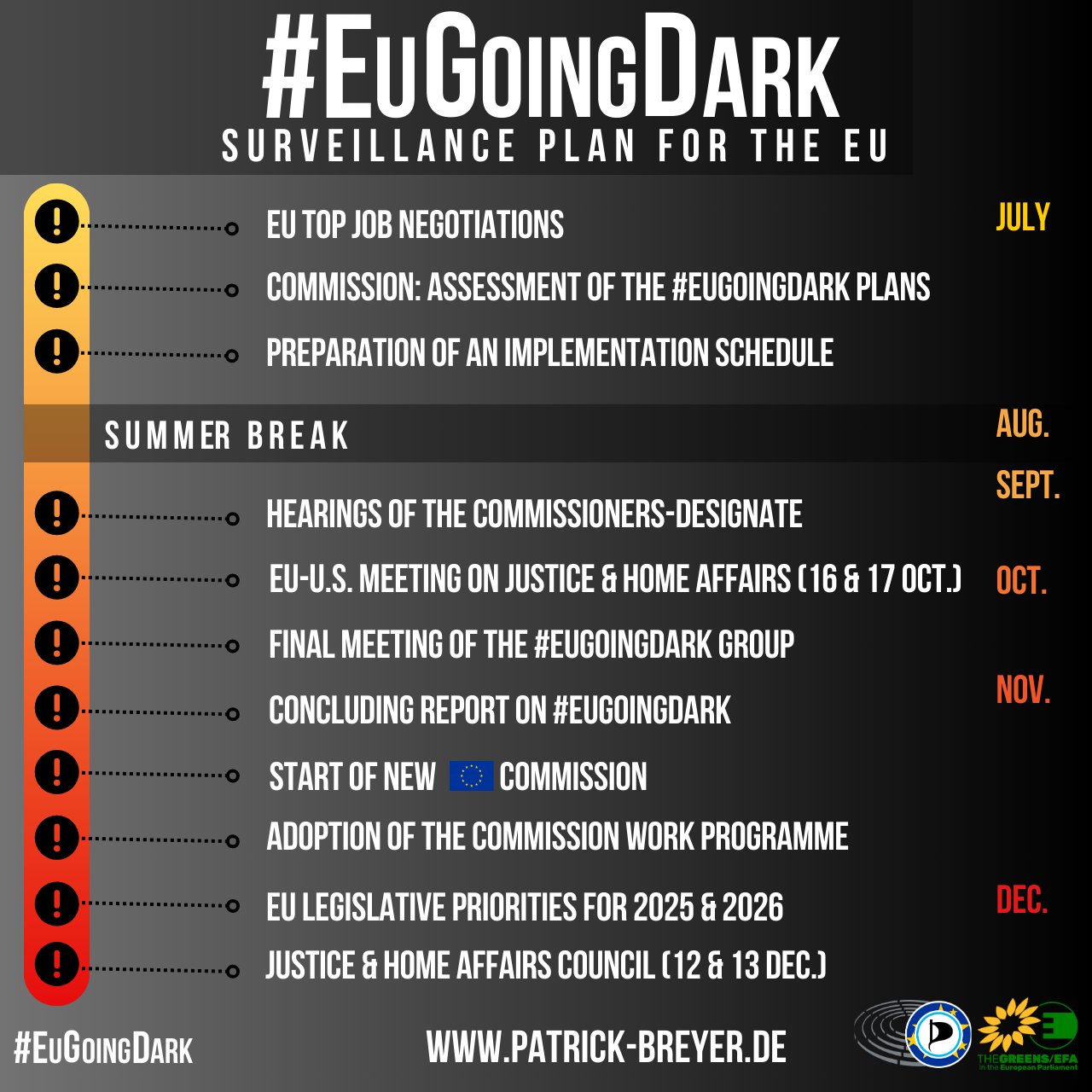Agreement reached on new Europol mandate: Illegal activities must not be legalised!
After several trilogues, negotiations on the revision of Europol’s mandate were concluded yesterday and more powers for the EU police agency were agreed to. Despite serious concerns from civil society and a reprimand from the European Data Protection Supervisor last year, Europol is to be allowed to collect and analyse masses of data about non-suspected people, such as mobile phone movement and air travel data.
As a substitute member of Europol’s supervisory body JPSG, MEP Patrick Breyer (Pirate Party) states:
“In the trilogue negotiations, my group Greens/EFA strongly opposed the reform, which aims to legalise Europol’s illegal actions instead of stopping them. According to the findings of the European Data Protection Supervisor, Europol has been illegally storing masses of data transmitted by national intervention authorities on millions of unsuspected individuals for years. We are talking about large amounts of data (mobile phone location data, passenger lists) of people who are in no way connected to criminal activities. The consequence is that innocent citizens run the risk of being wrongly suspected of a crime because they were in the wrong place at the wrong time.
The planned cooperation of Europol with private companies (such as Google and Microsoft), which unjustly report masses of people as part of pan-european message screening and chat control, is also unacceptable. The fact that Europol even wants to train error-prone algorithms with real citizens’ data in the future threatens to lead to false positives and discrimination.
Police cooperation in Europe is of crucial importance. For this to happen, however, Europol must be effectively monitored and prevented from violating the law. The supervisory mechanisms, which have been superficial so far, have not been given teeth to detect and stop illegal practices by the authority. As a member of the supervisory body, I still have no right to inspect Europol.“

